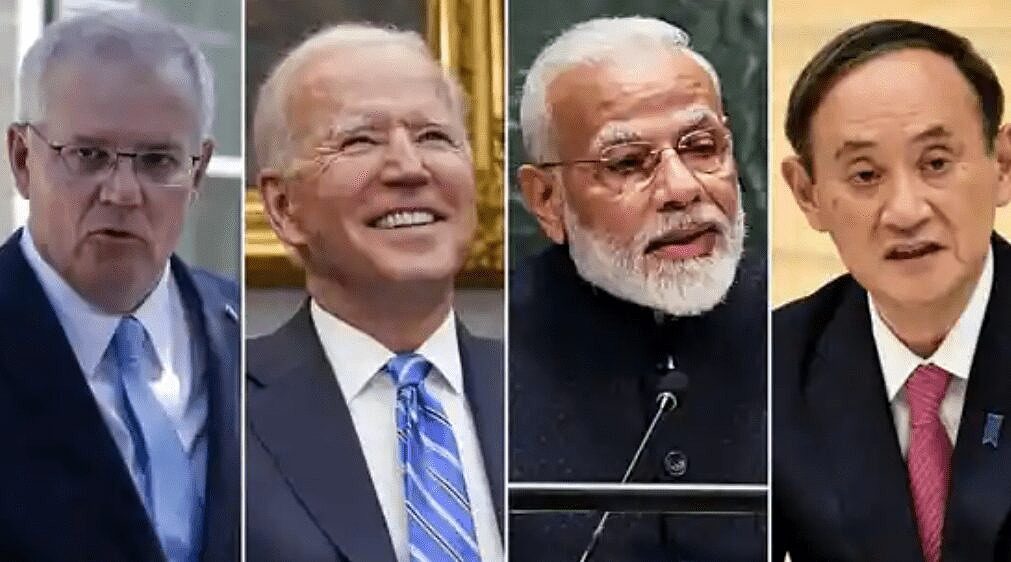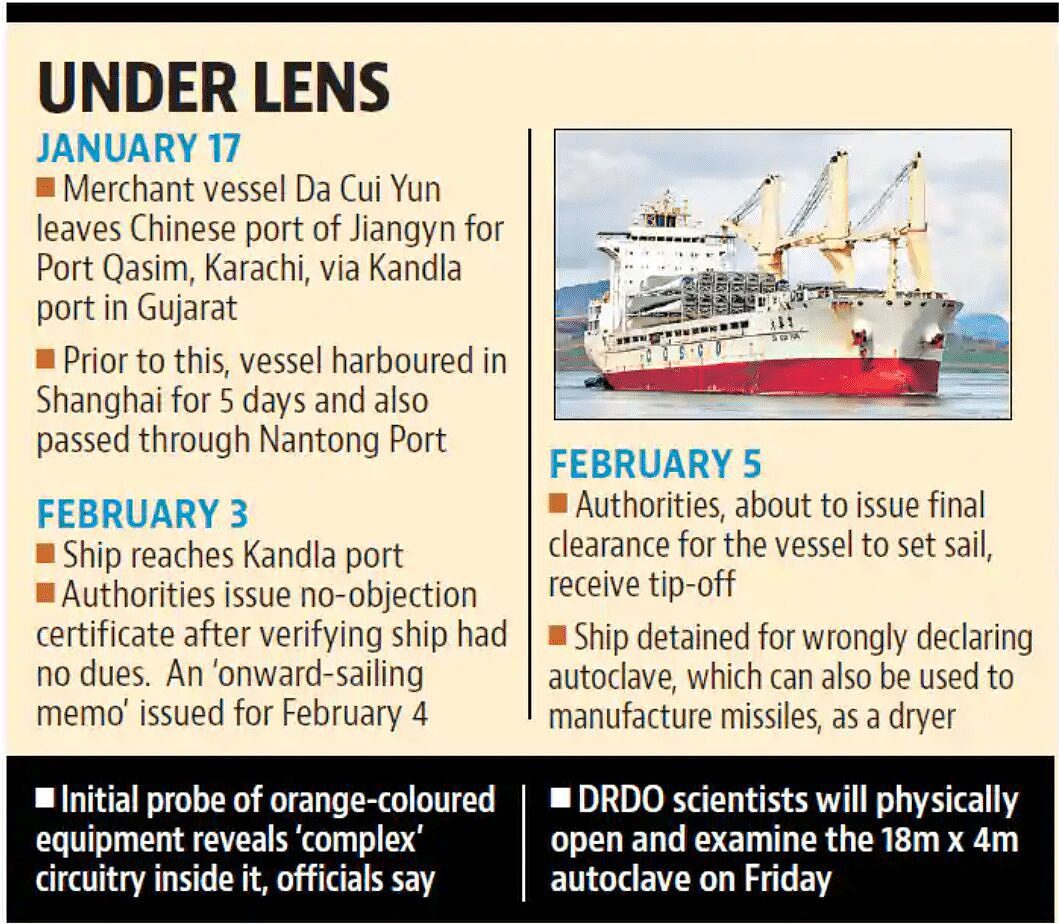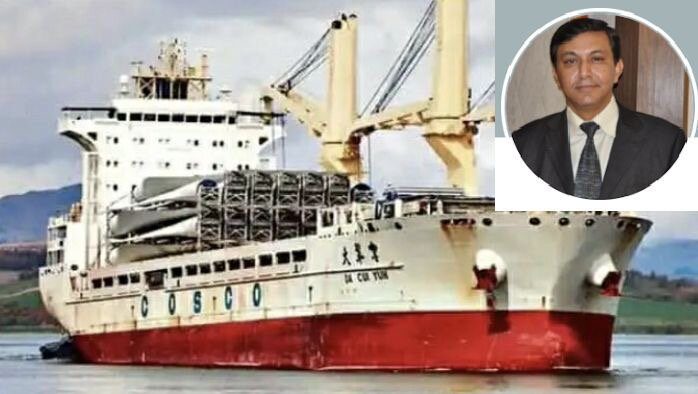The Klaxon has obtained an extensive, top-level intelligence dossier exposing in high detail China’s alleged central role in Pakistan’s rapidly advancing nuclear weapons capabilities. In explosive revelations, corroborated by numerous high-level international intelligence sources, it is alleged illicit transfers of nuclear technology and materials are being run through Pakistan’s embassy in Beijing. Plus an alleged mastermind behind the scheme is exposed. Anthony Klan reports.
Appreciate our quality journalism? Please donate here
EXCLUSIVE
China has been actively facilitating Pakistan’s nuclear weapons proliferation in violation of its international commitments, with extensive operations being run through Pakistan’s embassy in Beijing, according to multiple, high-level, foreign intelligence sources.
The Klaxon has obtained a highly-detailed intelligence dossier detailing China’s heavily increased involvement in advancing Pakistan’s nuclear warfare capabilities, with top-level intelligence sources warning the illicit transfers were now occurring with “sheer audacity”.
It is alleged the transfers are being orchestrated via the Scientific Affairs Division of the Pakistan embassy in Beijing, involve the illegal advancement of Pakistan’s “weapons-related nuclear and missile programme”, and put China in contravention of its international agreements.
Senior intelligence sources have also named a China-based Pakistani businessman, Syed Ummar Ali Bukhari, as allegedly being a key figure in the operations.
“Ummar Bukhari has been playing a key role in supplying sensitive equipment to (Pakistan) and to New Auto Engineering, a Pakistan front company sanctioned by the US for its involvement in the development of weapons for mass destruction,” one top-level intelligence source told The Klaxon.

Syed Ummar Ali Bukhari – allegedly closely involved in Pakistan nuclear proliferation. Source: Supplied
The businessman was allegedly central to the illegal shipment of a large industrial autoclave machine that was seized by Indian authorities in February last year.
The shipment was intercepted enroute to Pakistan’s Port Qasim and Indian authorities said the machine was “dual use”, meaning it had both military and civilian applications, and that it had been falsely labelled as an “industrial drier”.
Industrial autoclaves are used to manufacture sheets of silica under high temperature and pressure and have civilian applications, but they are also used in the process of manufacturing long-range ballistic missiles and satellite launch rockets.
The revelations come days after this month’s “historic” first leader-level meeting of the Quadrilateral Security Dialogue, or ‘Quad’, an informal strategic and security information coalition between the US, India, Japan and Australia.
Ties between the four democratic nations, who are advocating a “free and open Indo-Pacific”, have been solidifying in response to increasingly aggressive and expansionist actions by China.
Pakistan has had nuclear weapon technology since the 1970’s, however high-level intelligence sources said its capabilities, including the ability to attach nuclear warheads to ultra long-range missiles, were expanding rapidly, driven by Beijing.
“The Scientific Affairs Division at the Pakistan embassy, Beijing, has been coordinating all supplies from China to Pakistan strategic organisations”
— Senior intelligence source
This newspaper has obtained detailed information regarding a string of specific “recent proliferation events” allegedly tied to Pakistan’s Beijing embassy, involving Pakistan’s military, the Pakistan Foreign Office, the Chinese government and a network of international companies and “other strategic organisations”.
“Pakistan’s strategic program, from design, production to delivery are mainly dependent on supplies and assistance from Chinese entities, in the form of equipment, services and technology transfer,” one high-level intelligence source told The Klaxon.
China “assisted and continues to assist” Pakistan in its “weapon related nuclear and missile program, violating its international commitments,” the source said.
“Riding on such assistance, Pakistan continues to increase its capabilities to produce fissile material for nuclear weapons and nuclear warhead stockpile, including delivery platforms (missiles).”
In one alleged incident, a known Pakistani weapons manufacturer allegedly illegally imported from China highly-specialised manufacturing equipment capable of producing “high grade (T-700)” carbon fibre, which is used in the production of ballistic missiles.
In another, Pakistan’s military was allegedly intercepted attempting to source restricted “dual-use” equipment that can be used in the development of “missiles, including supersonic cruise missiles”, involving the upgrading of an aerospace technology facility in Pakistan. (More details below).

Leaders of the four Quad nations, held a summit on March 12. Source: Supplied.
“China continues to supply nuclear equipment and materials Pakistan despite the objections of the Nuclear Suppliers Group (NSG),” one high-level intelligence source told The Klaxon.
The Nuclear Suppliers Group is a multilateral export control regime comprised of 48 countries which seeks to prevent nuclear proliferation by controlling technology, equipment and materials that can be used to make nuclear weapons.
“Notable here is the much visible nexus between the NSG member (China) and a non-signatory (Pakistan) and the sheer audacity with which it is done,” the source said.
“This nexus has helped Pakistan to develop its strategic capability, specifically in the production of fissile material for nuclear weapons and their delivery platform”.
Neither India or Pakistan are members of the NSG.
China is opposing India’s entry into the group, arguing it shouldn’t be allowed entry unless Pakistan is also made a member.
Intelligence sources said China’s foreign ministry had been intercepted telling Pakistan’s Ministry of Foreign Affairs to instruct its operatives to “remain cautious” and to “maintain a low profile while conducting sensitive transactions and businesses in China”.
China was wary about international retaliation and the impact on Pakistan’s “non-proliferation and export control credentials” should the covert nuclear proliferation activities be exposed, a senior intelligence source said.
China has denied illegally providing Pakistan with nuclear weapons technology.
The Pakistan Foreign Office did not respond to requests for comment.

The Hindustan Times reports on the seizure of the industrial autoclave. Source: The Hindustan Times
Ummar Bukhari
Chinese commercial ship Da Cui Vin was intercepted by Indian customs officials at Kandla Port, in India’s north-west, on February 3 last year following a “high-level” tip-off from intelligence agencies.
Indian officials seized from the Pakistan-bound vessel an industrial autoclave machine measuring 18 metres by 4 metres, about the size of three shipping containers or a small house.
Experts from India’s Defence Research and Development Organisation determined the autoclave had military applications, and India’s government said the item was controlled under the nation’s Duel Use Export Control lists.
China subsequently denied the autoclave was intended for military purposes, but failed to provide any evidence to support that claim.
In March last year Pakistan said it was “factually incorrect” that the autoclave was for military purposes, but it also failed to provide any substantive evidence to back its claims.
While China has been supplying nuclear weapon technology and materials to Pakistan since the 1980’s, the autoclave interception sent shockwaves through intelligence and security agencies who are increasingly concerned about Pakistan’s China-driven nuclear proliferation.
News of the seizure emerged publicly on February 17 last year, after the story was broken by veteran journalist and security expert Shishir Gupta of India’s respected Hindustan Times.
High-level intelligence figures say Pakistani businessman Ummar Bukhari, the owner and CEO of Yiwu Ganggu Trading Company, which is based in China’s Zhejiang Province, played a key role in the February 2020 attempted autoclave importation.
“Ummar Bukhari has been playing a key role in supplying sensitive equipment to Pakistan”
— Top level intelligence source
He has also allegedly been closely involved in other illegal transfers.
Ummar Bukhari was allegedly involved in commissioning for Pakistan autoclave parts which were received by Pakistan in September 2018.
“In the context of the recent autoclave issue, a five member Pakistan delegation from (Pakistan’s) Project Management Organisation was scheduled to visit China from December 3 to December 14, 2018,” one senior intelligence source said.
“During the visit, a member of the Pakistan delegation, Colonel Usmani, director of procurement, was to meet Ummar Bukhari to discuss the commissioning and instillation of Autoclave components, which were received (by Pakistan) in September 2018”.
Ummar Bukhari did not respond to a request for comment.
According to his LinkedIn social media profile, Ummar Bukhari has been with Yiwu Ganggu Trading Company since 2010. Before that he ran a company in Pakistan called Gawns Associates, his profile states.

Yiwu Ganggu Trading Company, deals in “military hardware”. Source: Supplied
Searches by The Klaxon show Yiwu Ganggu Trading Company advertises as a supplier of “military hardware”.
The group says it deals in in the “supply of engineering equipment and services” to “public and private sector organisations”.
Its “major areas of interest” include “military hardware”, “military vehicles (tracked as well as wheeled)”, and “autoclave(s)”.
Intelligence sources said because autoclaves were “dual use” technologies (with both civilian and military applications) they were not banned under the Missile Technology Control Regime.
(The Missile Technology Control Regime is a group of 35 countries aimed at preventing the proliferation of “unmanned delivery systems” which are “capable of delivering weapons of mass destruction”.)
Regardless, exporting autoclaves required “proper licensing along with an end-user certificate”, of which the seized item had neither.
The attempted autoclave importation was allegedly just one of many similar recent incidents.
“The recent attempt by China to supply the autoclave to Pakistan under the over of ‘industrial drier’ is one of many such proliferation efforts made by China in the recent past, to augment Pakistan’s strategic capability,” one senior intelligence source told The Klaxon.
Pakistan state-owned defence and aerospace contractor National Defence Complex had received “liberal material and technical assistance from China” for the development of “solid propellant-based missiles Shaheen I, II and III” and “cruise missiles like Babur and Road”.
Recent “proliferation efforts”
A high-level intelligence dossier obtained by The Klaxon details four alleged illegal proliferation incidents involving China and Pakistan:
– In January 2019 Pakistan’s Defence Science and Technology Organisation (DESTO), part of Pakistan’s Ministry of Defence, allegedly approached a Chinese company to upgrade a facility that can be used in developing missiles, including “supersonic cruise missiles”.
“Pakistan approached Aerospace Long March International Company Ltd for procuring equipment/spare parts for upgrading its wind tunnel facility at Chaklala, Rawalpindi, through China Academy of Aerospace & Aerodynamics (CAAA),” the dossier states.
“The facility at Chaklala was set up by CAAA with assistance from China National Precision Machinery Import/Export Corporation (CPMIEC).
“The facility could be used in the development/testing of high speed, scaled-up, models/aerodynamic structures such as aircraft, missiles, including supersonic cruise missiles,” the document states.
– In June 2019 DESTO allegedly approached another Chinese company seeking five “axis computer numerical control machines” which are used in the machining of “complex 3D structures” and have military applications.
“Chinese company Neway CNC Equipment (Suzhou) Company Ltd. was approached (June 2019) by its Pakistan local representative Link Lines Pvt. Ltd., Rawalpindi, for the supply of five axis computer numerical control machines, required by DESTO,” the dossier states.
“The machines find applications in military and aerospace for machining of complex 3D structures”.
– In November 2018 a senior scientist with a Pakistani heavy water production plant was scheduled to visit China to inspect “sensitive equipment” that was being sought by the Pakistan government.
“Athar Munir, a senior scientist at Khushab Chemical Project-I, a heavy water production plant at KCP complex, was scheduled to visit Tianjin, China, from November 26, for the pre-shipment inspection of some sensitive equipment that the Directorate General of Technical Procurement (DGTP) of Pakistan sought to procure from China,” the dossier states.
“The Scientific Affairs Division of the Pakistan embassy, Beijing, was coordinating the visit.”
– In May 2018 a Pakistan-based company allegedly imported from China carbon fibre manufacturing equipment capable of producing ballistic missiles. It is alleged the technology ended up in the hands of an entity in Pakistan that produces ballistic missiles and that the Chinese government directly facilitated the transfer.
“A Pakistan-based company imported (May 2018) carbon fibre manufacturing equipment capable of producing high-grade (T-700) special quality carbon fibre that finds application in the production of ballistic missiles, from China,” the intelligence dossier states.
“It is alleged that the end-user in Pakistan is engaged in producing ballistic missiles.
“Upon investigation, China ascertained that though the export of the said equipment is prohibited under Missile Technology Control Regime (MTCR), it is not covered under the Chinese export control list, and (China) instructed its customs authorities to allow the equipment to move to its destination.
“China also emphasised that it would not allow targeting Pakistan under its own export control laws,” the document states.
“China instructed its customs authorities to allow the equipment to move to its destination”
— Intelligence dossier
Security analyst Pulkit Mohan, writing for India’s highly regarded independent think tank Observer Research Foundation (which last year was ranked among the world’s top ten non-US think tanks by the University of Pennsylvania’s Global Go To Think Tank Index), said the February 2020 autoclave incident “once again highlights the continuing and strong nexus between China and Pakistan in the area of weapons of mass destruction”.
A fellow with ORF’s Nuclear and Space Policy Initiative, Mohan said it was “well known that Pakistan’s nuclear program is not indigenous” and that China had a “critical role in the development and sustenance of the Pakistani nuclear weapons program”.
The autoclave shipment was in “clear violation of international frameworks” and proved New Delhi’s concerns regarding China and Pakistan’s alliance in the “nuclear and military domain” nuclear were “not unfounded”.
“The seizure demands an appropriate response from India’s national security planners due to the clear violation of international frameworks,” Mohan writes.
“Given the rarity of such incidents being intercepted by Indian authorities, it is important that India looks into possible responses.”
Despite pressure from security and intelligence experts, India is yet to formally take the matter to international bodies.
Up next: Part Two – The new transportation channels
Help us get the truth out from as little as $10/month.
Unleash the excitement of playing your favorite casino games from the comfort of your own home or on the go. With real money online casinos in South Africa, the possibilities are endless. Whether you’re into classic slots, progressive jackpots, or live dealer games, you’ll find it all at your fingertips. Join the millions of players enjoying the thrill of real money gambling and see if today is your lucky day!
The need for fearless, independent media has never been greater. Journalism is on its knees – and the media landscape is riddled with vested interests. Please consider subscribing for as little as $10 a month to help us keep holding the powerful to account.






